
Our board member Gaby Damjanovich, together with Déi Greng Seniors, invited our Vice Chair Christa Möller-Metzger and exciting Luxembourg experts to an event on the Day of Older Persons in Luxembourg. In the morning, Christa was interviewed at 8 a.m. in the RTL studio. When does one actually become old? What can be done to combat loneliness? Why is soil sealing dangerous? The most important statements were repeated throughout the day in the news. As a result, many older people came to the evening event to learn more about age-friendly cities, with almost 70 listeners gathering in the Bürgersaal in Walferdingen.
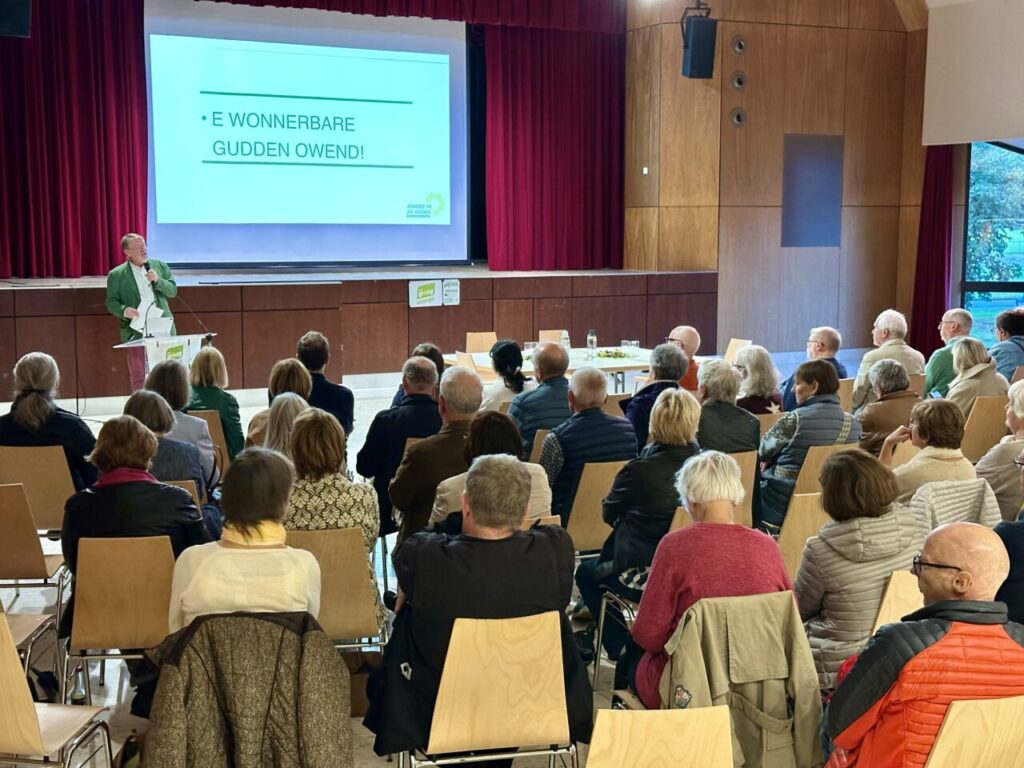
Charles Margue moderated and introduced the topic, and Christa began her presentation with demographic change. In Luxembourg, the situation is similar to that in her hometown of Hamburg; due to immigration from outside the country, the change is coming a little later than in other countries. But it is coming. In the 2030s, the number of very elderly people here will double. And the number of centenarians will increase by over 35%.
That’s not a bad thing if we are prepared for it. For example, by joining the WHO’s Age-friendly Cities and Communities network. More than 1,700 cities and communities in over 60 countries worldwide have already joined. Urban and rural areas.
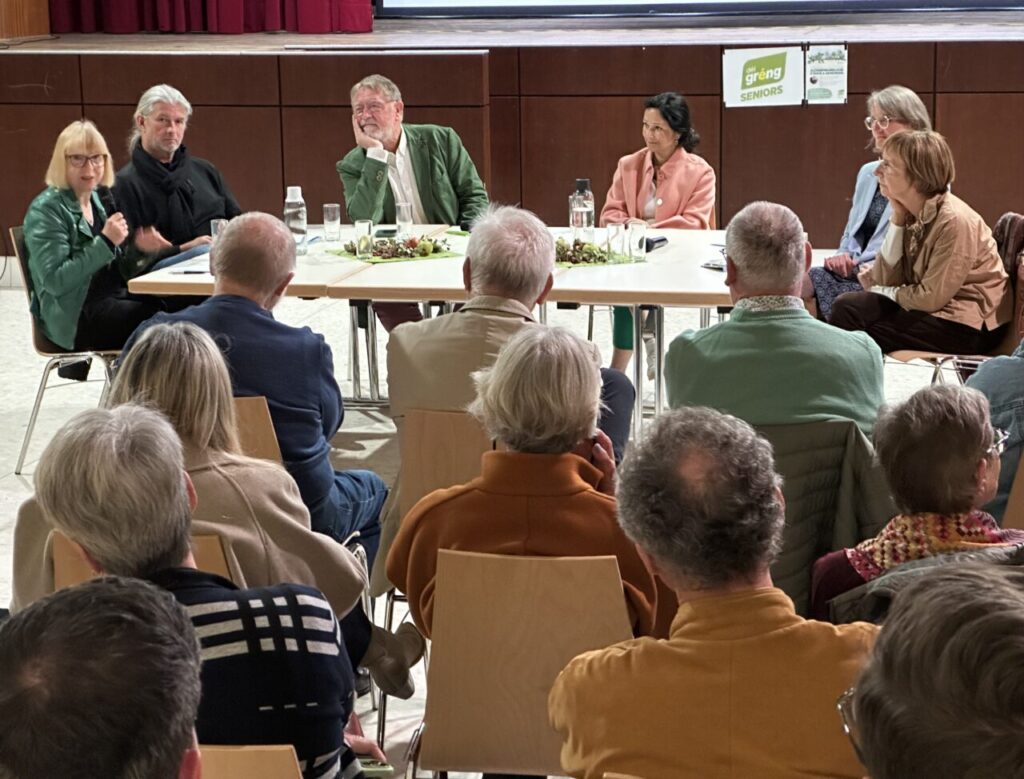
Christa took the audience on a short journey to age-friendly places. In Porto, Belfast and the UK, for example, the issue is loneliness. People increasingly feel lonely, especially in old age, from around 75 to 80 years of age. This is always the case when they have fewer social relationships than they would like.
Studies show that loneliness is as harmful as smoking 15 cigarettes a day. And whenever this feeling arises, the same areas of the brain are activated as when we experience pain. Loneliness hurts!
And there is also a political component: lonely people are less likely to vote, are less involved in society and are more susceptible to conspiracy theories.
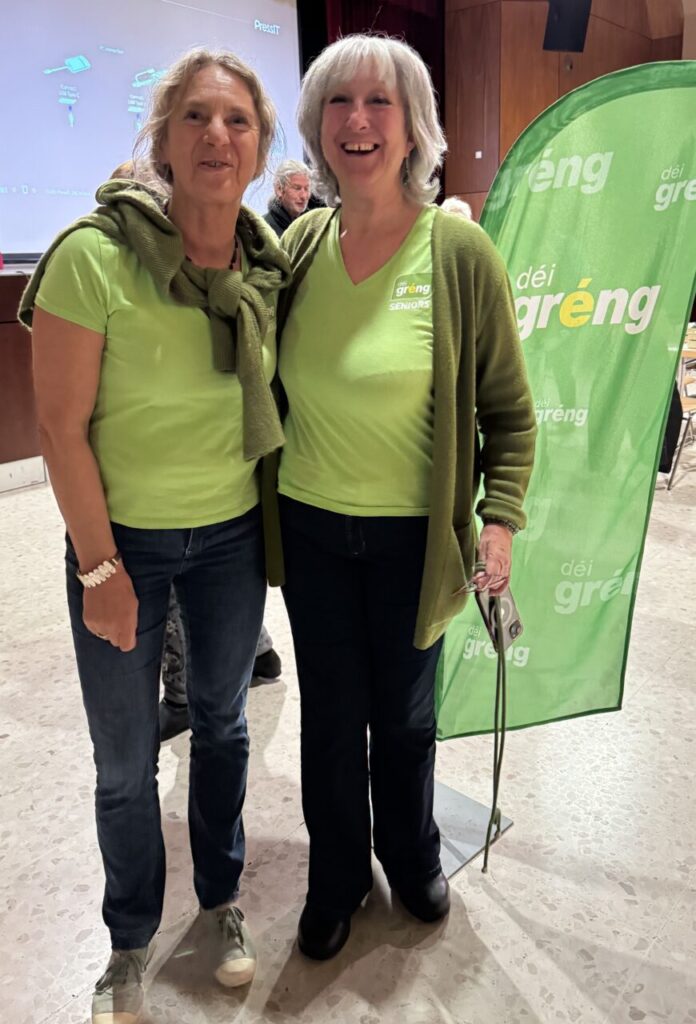
In surveys, women are more likely to say that they feel lonely – e.g. when they lose their partner or friends. Men don’t talk about it, but they generally have few social contacts. When poverty in old age is added to the mix and you can’t even afford a coffee or a beer, it becomes particularly difficult.
That’s why meeting places that don’t cost anything are important in general.
What goes down well in Hamburg is dancing in cool places, e.g. in clubs that are usually empty during the day.
Also great: outdoor places to play boules, e.g. intergenerational sports in the park that don’t cost anything. Or tango dancing?
In the UK, there are so-called men’s sheds especially for men, which are very popular with men for pottering about and doing crafts.
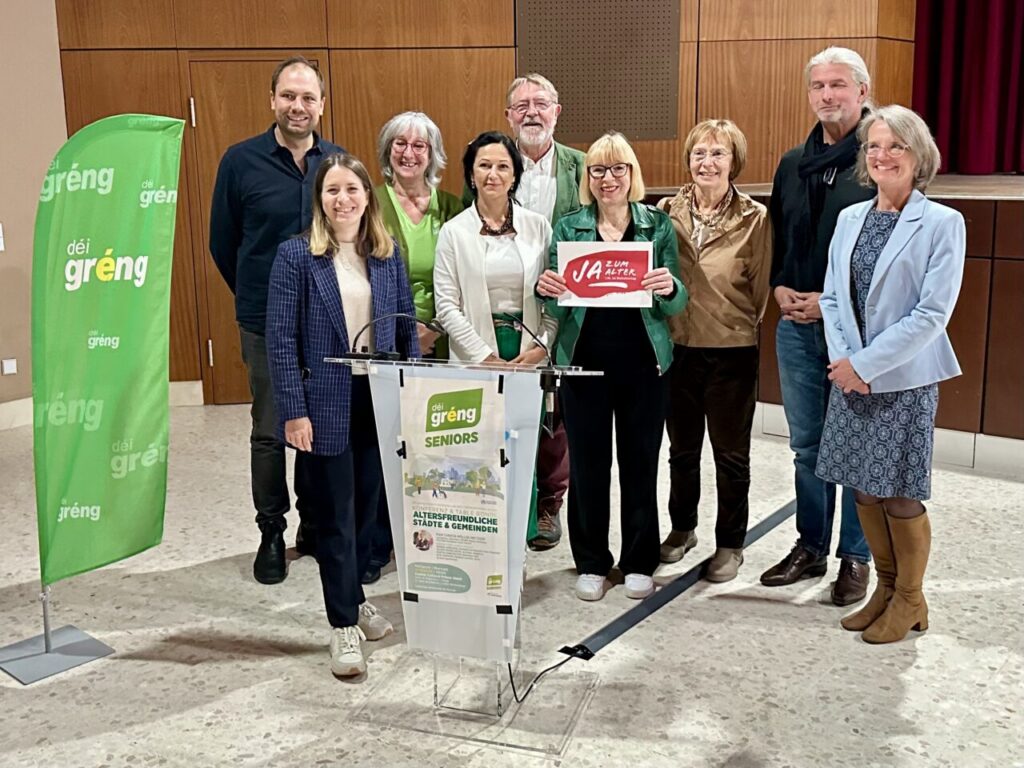
Many older people also complain that their complaints are not taken seriously during doctor’s appointments. That’s just old age, they are told, that’s how it is.
Depression in old age also remains far too often undiagnosed or is not taken seriously enough.”
A German study has just shown that 60% of men over the age of 60 were neither treated with antidepressants nor received psychotherapeutic care despite being diagnosed with depression by a doctor.
This has serious consequences in some cases. The risk of suicide increases significantly with age – especially among men. Nevertheless, mental health is not taken seriously in older people.
In a recent German study on ageism, 53% of respondents said that older people inhibit social progress and do not exercise, and half said that people over 70 should no longer be involved in politics.
But today’s elderly are no longer the same as they were 20 years ago. We finally need realistic images; the elderly are neither super seniors nor weak victims, nor is there such a thing as ‘the elderly’ – they are just as diverse as other generations.
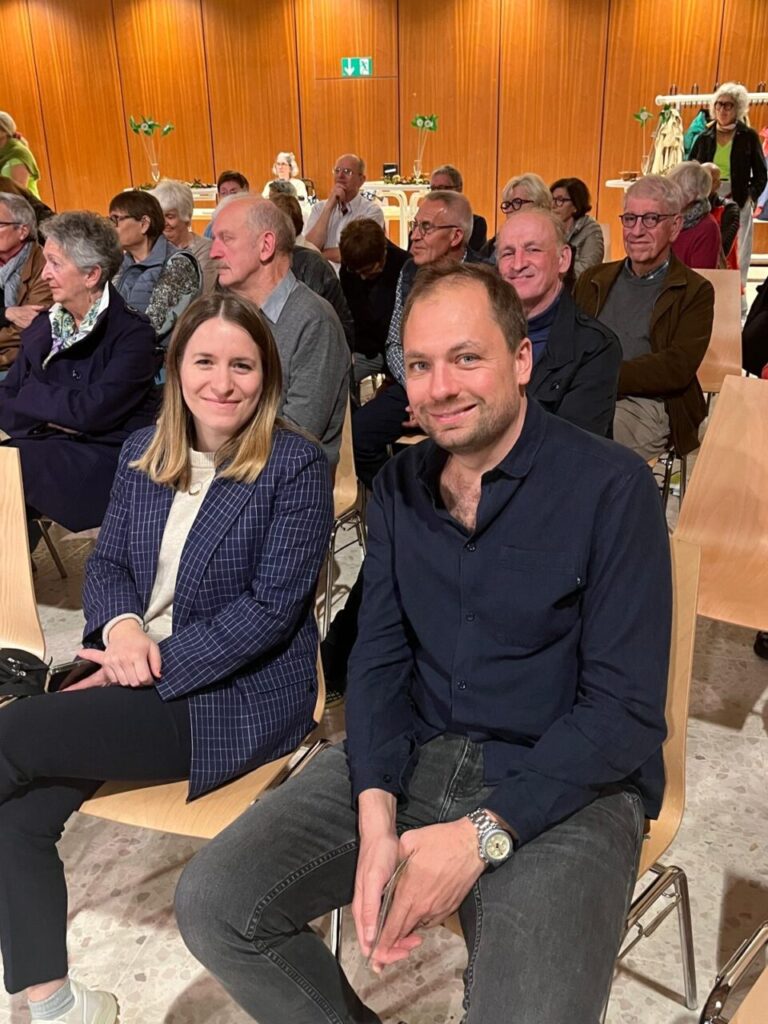
However, they must no longer be seen merely as a burden, a cost factor or a challenge, from the pensioner glut to the ageing tsunami.
We must see the great potential that older people have for the community. And we urgently need this potential.
For example, the European Green Seniors – and there is definitely a lot of power there!
We need this potential in jobs, we need to think in terms of potential, i.e. what can I do, not what can I no longer do! And this applies to voluntary work, looking after grandchildren, caring for relatives…
Outdated images of age create nonsensical age limits.
At 70, you can no longer rent a car or get a loan, you are expected to stop volunteering, and you are no longer allowed to work as a lay judge. The worst thing is at work – and anyone who retires is considered past their prime anyway.Great Start
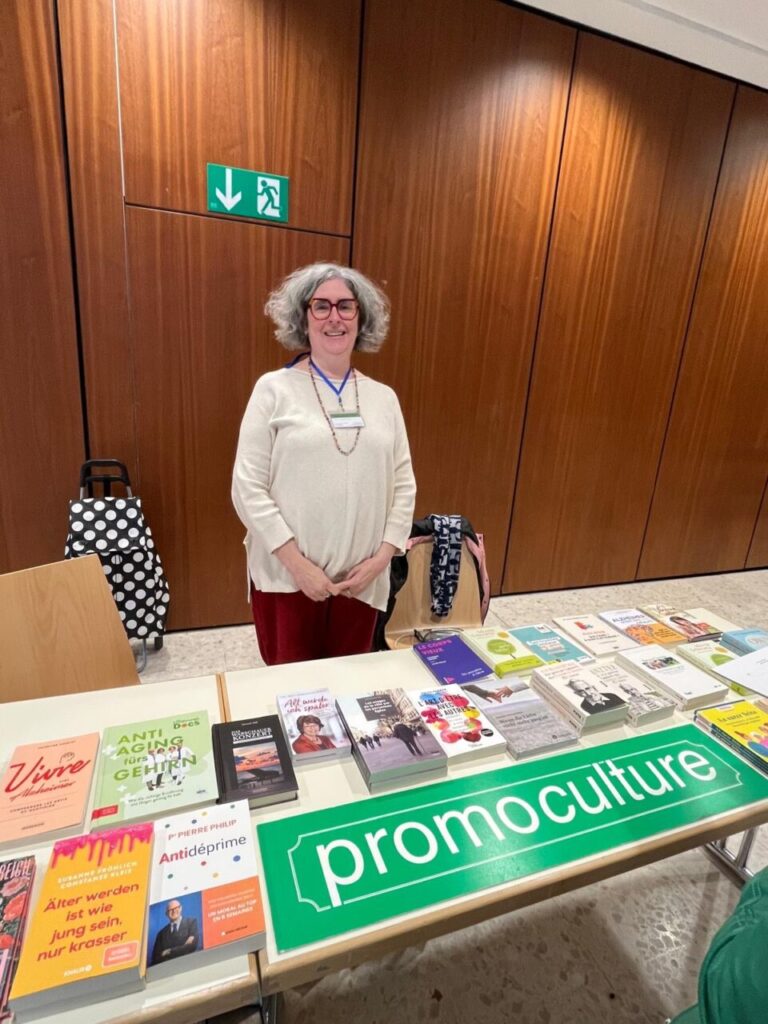
Negative images of age can be paralysing – both physically and mentally.
Positive images, on the other hand, inspire. This goes so far that people with a positive image of old age live on average 7 years longer.
Unfortunately, older people are not particularly valued in groups that are concerned with fair treatment. This is often the case with the Green Party, too.
We need to make age discrimination an issue and talk about it much more.
And finally, once again, the advantages of being a member of the network of age-friendly cities:
It is a commitment to work for the needs of older people in the city or community. The focus must shift from working for older people to working with them.
The umbrella term gives us greater visibility for issues affecting older people and provides a visible framework for all existing local measures.
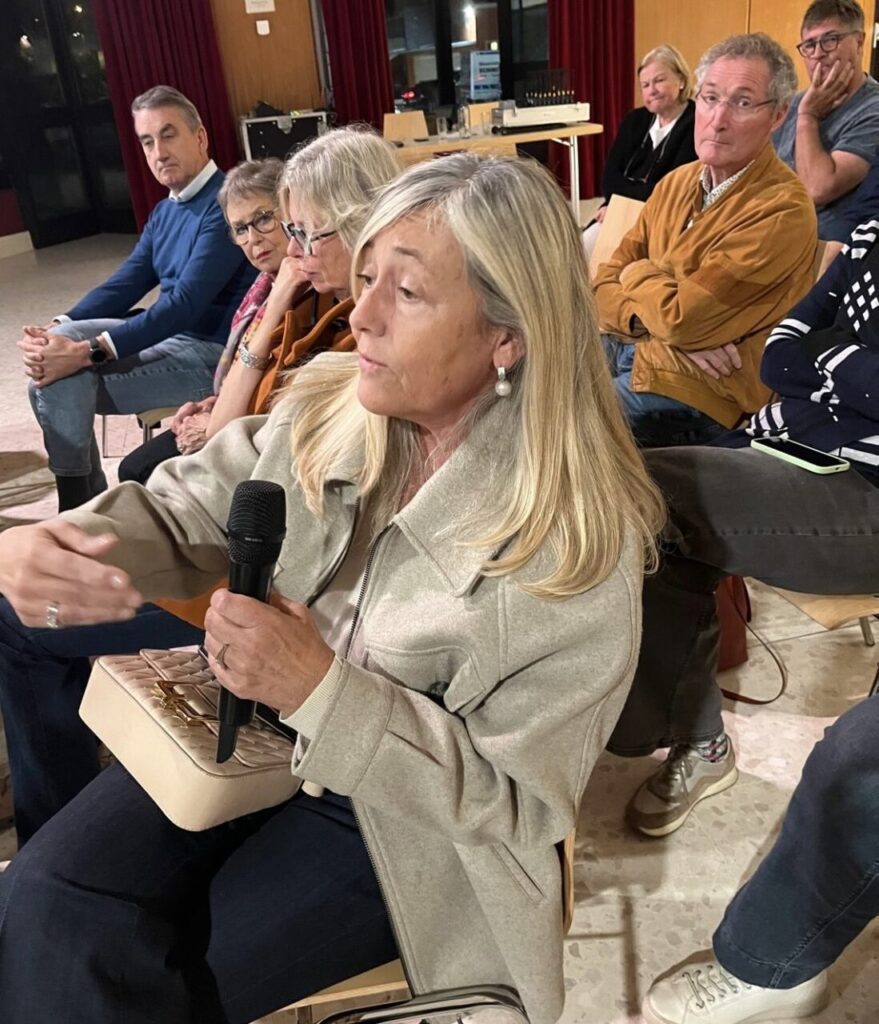
We have a modernisation drive for senior citizen policy that does justice to the baby boomer generation change. We need new images of old age; today’s elderly are no longer the same as they were 20 years ago.
We are internationally networked through the World Health Organisation.
There are no fixed targets. We can build on what we already have or are planning anyway. There just needs to be progress, which is defined in advance. This is then documented and uploaded for everyone to see.
We have an international label that enhances senior citizen policy.
The measures not only make life easier for older people, but also for other population groups such as parents of young children or people with disabilities.
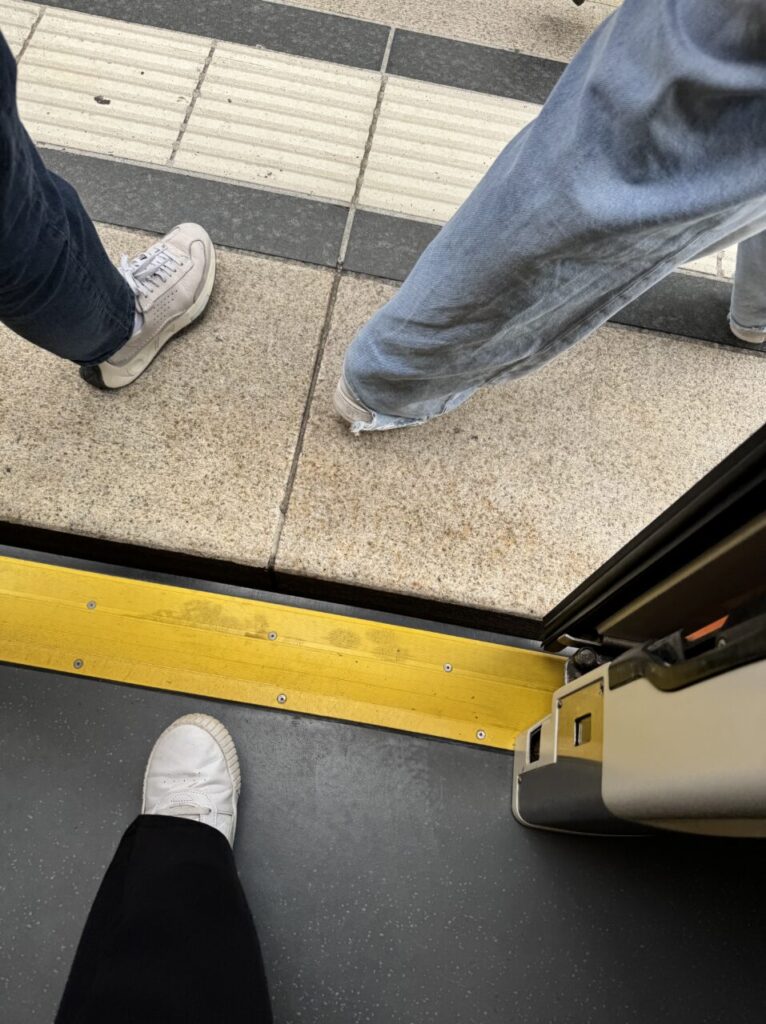
We should always keep all generations in mind. And under no circumstances should we get involved in generational conflicts. Too young, too old – these are two sides of the same coin.
Everyone was young once and will grow old. The age-friendly measures we implement today will benefit today’s young people tomorrow.
After Christa’s presentation, experts discussed housing exchanges, barrier-free access, assistance systems, poverty in old age and images of old age. Luxembourg is already further ahead than other European countries in some areas. For example, public transport is free, tram access is barrier-free, and cycle paths and footpaths in the city centre are often separate. There are lots of benches and seating areas, many sports facilities and, in general, lots of free leisure activities. However, ageism, which is particularly prevalent in the workplace here, is still not discussed enough. As everywhere else, perceptions of old age are outdated, and poverty in old age is a real issue despite the country’s relative wealth.

An exciting exchange and a great start for Gréng Seniors in Luxemburg! Thank you to Gaby and the GréngSenior team for their tremendous commitment, excellent press work and fantastic preparation for the event!

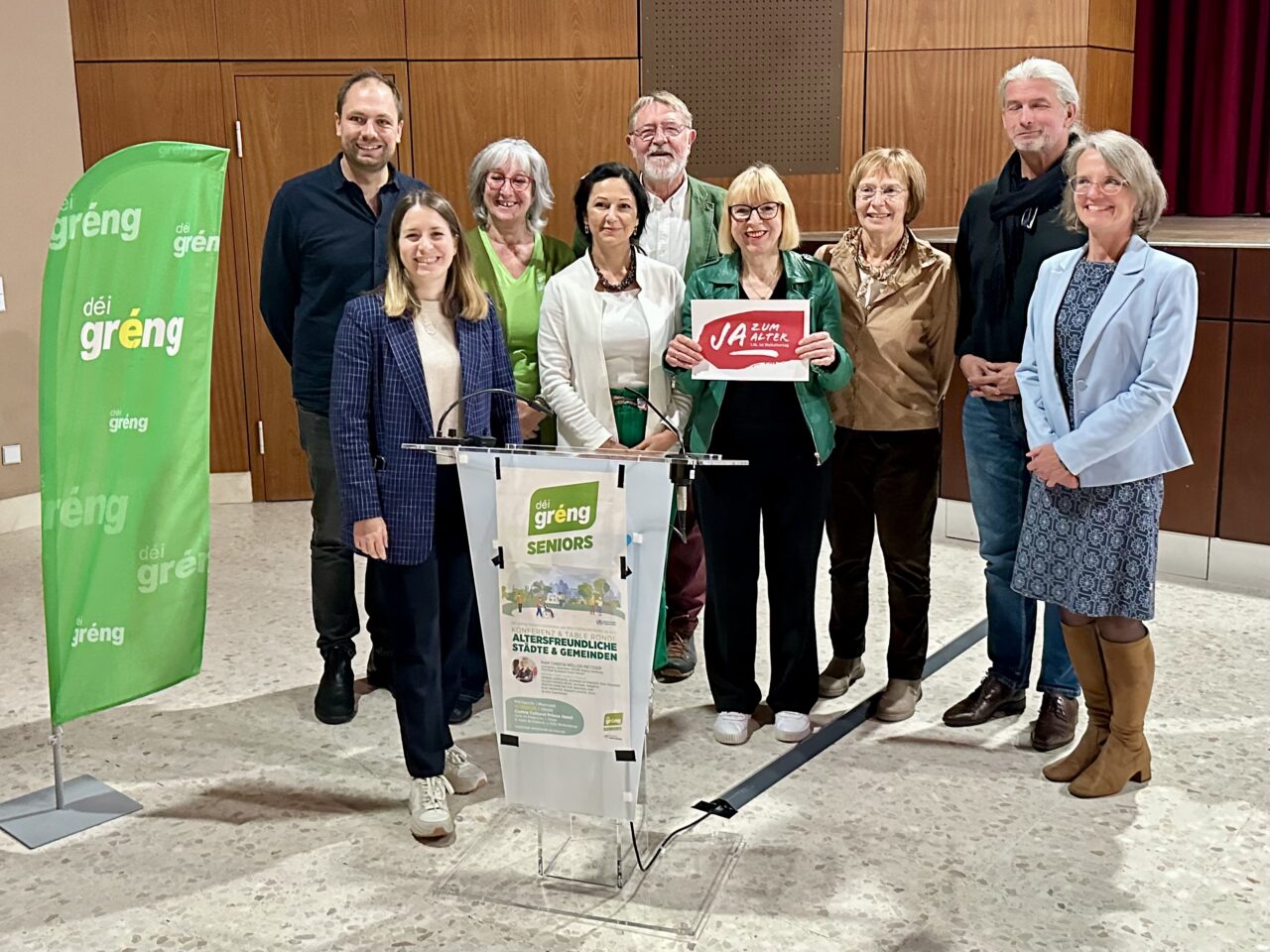


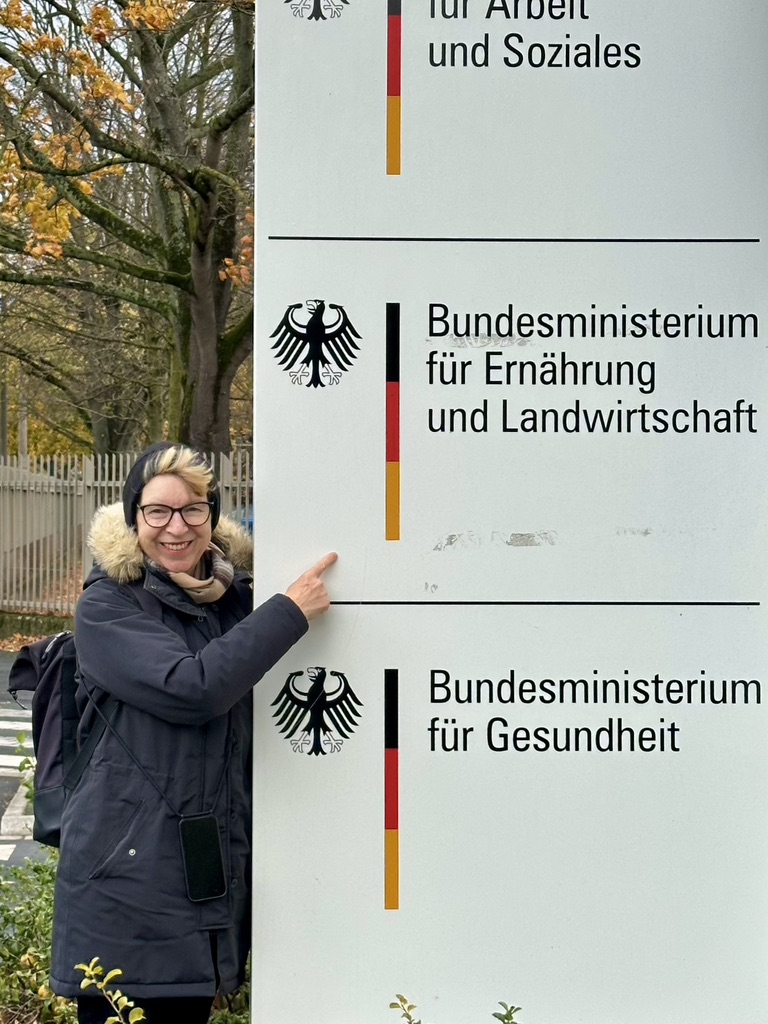
comment article